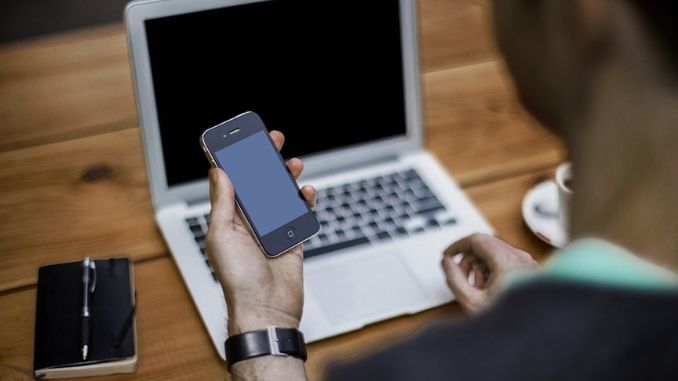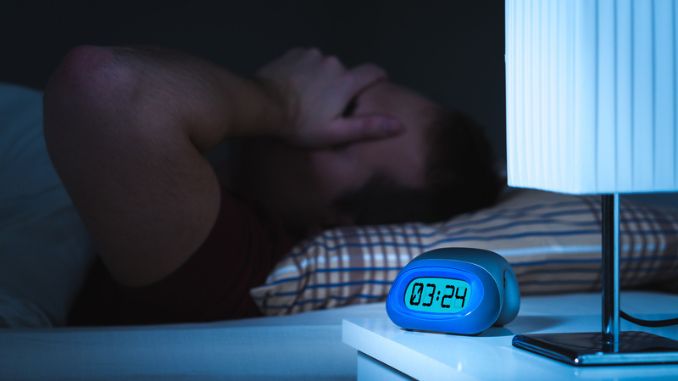We know you’ve heard this a thousand times already: Facebook pokes, Instagram likes and Tinder swipes do no good to your ability to focus on the task at hand. Using your smartphone while driving is six times more dangerous than driving drunk. Your smartphone is killing your cognitive abilities even when you’re not using it. This is also called brain drain.
The ever-growing stream of notifications is causing smartphone owners to experience symptoms similar to those of attention-deficit/hyperactivity disorder. Most of us find it harder and harder to focus on the current tasks for more than a few minutes without feeling the urge to move on to something else.
But here’s something you probably didn’t know yet:
You can’t put an end to distractions by simply turning the “do not disturb” mode on, putting your phone down, and getting to work.
The latest study has shown that even the mere presence of your smartphone is reducing your cognitive capacity.
Here is what Science has to say about this
The presence of your phone absorbs what the scientists call your automatic attention. This is an involuntary attention system that helps us to filter out all the relevant, potentially meaningful information from all the information that we knew.
Even when you are not actually checking your phone, involuntarily and subconsciously, you continue to pay some attention to your phone. That’s because you assume there might be something new and exciting going on in there that you’re missing out on. Even the people who spent a lot of time with their phones sometimes hear phantom ringing or vibrations. They just expect those signals so much!
Our brains have a limited capacity. A little part of your mind involved in keeping automatic attention on your phone. That means fewer cognitive resources available for other tasks.
The bottom line?
Even when you successfully control your urge to check your phone, it still eats up some of your attentional resources. It also consumes your ability to function in the world off-screen suffers.
How can you put an end to brain drain?
Like with all addictions, take it one day at a time. The habits are hard to break. Our brain gets really, really used to being constantly stimulated with likes, messages and notifications delivered by our smartphones. It receives a little burst of dopamine every time you receive like, comment, or follow. It begins to expect the next hit. That’s why when you break the chain, you can get real, physical withdrawal symptoms. This goes along with the strong urge to check your phone and even hearing phantom beeps, pings, and buzzes.
To get rid of your smartphone addiction (and later on, the smartphone itself), try these simple steps:
1. Disable notifications.
Even when your phone is with you, keep the “do-not-disturb” mode activated to minimize the interruptions of buzzes, pings and alerts. Check your new messages, Instagram likes, Facebook comments, app updates and whatnot all at once. Don’t let them pour in during the day, competing for your attention.
2. Get rid of unnecessary apps.
It’s rarely our smartphone itself that creates the addiction, but rather the online worlds it keeps us in touch with. As crazy as it sounds, some of the social media apps can be removed. You can do it without the world coming to an end or even you missing out on something that’s actually important).
3. Use an application to limit your phone usage.
The irony of this is not lost on us, but there are actually applications designed to help you limit your usage of other applications (of your choice). If you don’t have the guts to remove Facebook app from your phone altogether, RescueTime or similar app will at least ensure you don’t spend countless hours scrolling through it.
4. Have some smartphone-detox time regularly.
We don’t dare to suggest that you leave it at home for all week right away like this journalist did, but try to do it sometimes just to keep your possibly developing nomophobia at bay. To avoid brain drain, try to incorporate some phoneless activities into your daily life. For instance, make it a rule to never have your phone around as you eat, even if you’re eating by yourself.
What will change once you’re off the hook?
Establishing a healthy relationship with technology can bring huge changes to your everyday life.
You will get more productive. You’ll be using all of your attention for whatever is in front of you instead of it being pulled away by your phone.
You will feel energized. All-day multitasking is exhausting! The time and energy which would previously be devoted to your phone can now be spent on living more of your own life.
You will experience some moments of pure presence. Most of us forgot the very feeling of looking at something beautiful with no attempt to take photos of it, share it, discuss it with others almost right away. Avoiding brain drain means having no smartphone at hand will leave you no choice but to actually experience it fully, right there, right then.

Rick Kaselj MS, is a leading kinesiologist and injury specialist as well as co-creator of the best-selling Unlock Your Hip Flexors program. Rick creates exercise programs that help people heal injuries and eliminate pain, so they can go back to living a full, active, healthy life.







